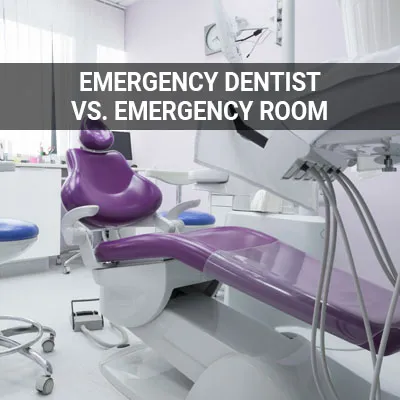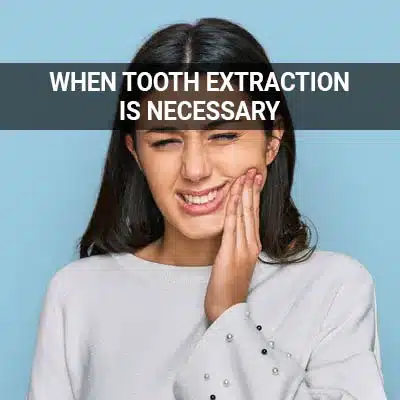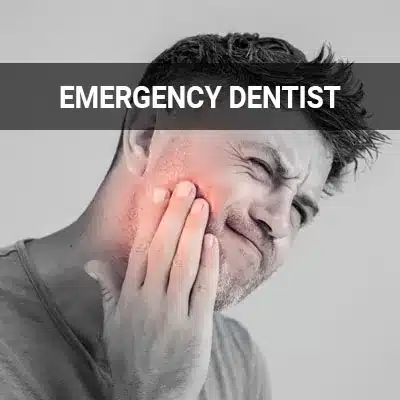
When a Situation Calls for an Emergency Dental Surgery Glendale AZ
Some dental issues are more pressing than others. When dealing with chipped, cracked, infected teeth or damage to orthodontics, patients should never delay. Emergency dental surgery may be necessary to preserve one's oral health.
Emergency dental surgery is available at Singh Smile Care - Dentist Glendale AZ and the surrounding area. Do not hesitate to get the treatment you need. Call us today at (623) 400-6009 to schedule an appointment or learn more about our services.

Understanding Dental Emergencies
A dental emergency is any issue that is potentially life-threatening and requires immediate treatment. Dental emergencies often involve uncontrolled bleeding or severe pain and/or infection. Some situations, however, may feel pressing without being dental emergencies. These may include:
- Cosmetic dental procedures
- Extraction of asymptomatic teeth
- Initial or periodic oral examinations and recall visits, including routine radiographs
- Orthodontic procedures that do not address acute issues
- Restorative dentistry including treatment of asymptomatic carious lesions
- Routine dental cleanings and other preventative measures
Patients should keep in mind that the above list is not exhaustive. If there is any confusion about whether or not an immediate visit is necessary, call us at (503) 661-2828. We can determine if an issue can be resolved at a routine visit or requires emergency dental surgery.
According to the American Dental Association (ADA), a dental emergency is any issue that is potentially life-threatening and requires immediate treatment.
Chipped Teeth
A chipped tooth may occur when the enamel is worn away by trauma or excessive wear and tear. As a result, the tooth surface may become sharp and jagged. Patients with tooth decay, cavities, and large fillings are at particular risk for chipped teeth. Bruxism can also wear down the enamel, as can eating acid-rich foods.
Chipped tooth treatment is typically dependent on the chip's location, severity, and symptoms. It becomes a medical emergency when it causes severe pain and impedes one's ability to eat and sleep. More extensive chips may be reattached or bonded. Porcelain veneers or dental onlays may also be an option.
A chipped tooth may occur when the enamel is worn away by trauma or excessive wear and tear.
Cracked Teeth
Like chipped teeth, cracked teeth may be caused by trauma or general wear and tear. Symptoms may range from intermittent pain when chewing to sudden temperature sensitivity. It is not uncommon for these symptoms to come and go, making it difficult for cracked teeth to be diagnosed. Patients experiencing these symptoms or suspect they have a cracked tooth should seek medical attention immediately, as early intervention is key to saving the tooth.
Treatment depends on the extent, location, and type of the crack. A fractured cusp may be treated with a filling or crown. A crack that extends vertically toward the root may require a root canal. A split tooth will require endodontic treatment. In contrast, a vertical root fracture may necessitate endodontic surgery or tooth extraction.
Patients who are experiencing these symptoms or suspect they have a cracked tooth should seek medical attention immediately, as early intervention is key to saving the tooth.
Infected Teeth
Abscesses form as a result of bacterial tooth infections. Though they may occur in different areas of the tooth for different reasons, periapical tooth abscesses are particularly common. This type of abscess typically occurs due to an untreated dental cavity, trauma, or prior dental work.
Infected teeth will need to have their tooth abscesses drained to get rid of the infection. In most cases, root canal treatment will be necessary to attempt to save the tooth. However, in more severe cases, tooth extraction may be necessary. An untreated tooth abscess may lead to life-threatening complications. As such, it requires immediate attention.
Infected teeth will need to have their tooth abscesses drained to get rid of the infection.
Questions Answered on This Page
Q. What is a dental emergency?
Q. What is the treatment for a chipped tooth?
Q. What is the treatment for a cracked tooth?
People Also Ask
Q. What procedures are performed under emergency dental care services?
Q. When should I go straight to the emergency room
Q. What should I do while waiting to get to the emergency dentist?
Damage to Orthodontics
While damage to orthodontics rarely requires dental emergency surgery, a patient's first step should always be to determine the extent of the issue. Damage to orthodontics is typically considered severe when it includes trauma to the teeth, mouth, or face.
Patients with orthodontic devices may suffer puncture wounds or profuse bleeding after experiencing trauma to the mouth. Emergency dental surgery may be necessary when damage to orthodontics results in swelling of the gums, mouth, and face. Unmanageable pain may also be a symptom.
Patients with orthodontic devices may suffer puncture wounds or profuse bleeding after experiencing trauma to the mouth.








